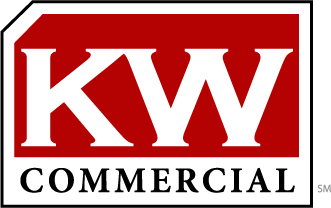How to Prepare Your Property for Sale in 2025
The spring market typically brings an influx of buyers to the commercial real estate market. To maximize your chances of a successful and timely sale, proactive preparation is key.

Conduct a Thorough Property Assessment:
Begin by objectively evaluating your property's strengths and weaknesses. Consider the building's age, condition, and any recent renovations or upgrades. Analyze the property's location, accessibility, and proximity to amenities. Research comparable sales in the area to understand current market values and identify potential pricing strategies.
Enhance Curb Appeal and Exterior Appeal:
First impressions are crucial.
Exterior Enhancements:
Landscaping: Ensure the landscaping is well-maintained. Trim hedges, mow the lawn, and add fresh mulch or flowers.
Exterior Cleaning: Power wash the exterior of the building, sidewalks, and parking lots to remove dirt and grime.
Roof and Facade: Address any visible roof damage, such as missing shingles or leaks. Repair or replace cracked or peeling paint on the building's exterior.
Signage: Ensure signage is clean, professional, and accurately reflects the property's identity.
Parking and Access:
Parking Lot Maintenance: Repair any potholes or cracks in the parking lot. Ensure adequate parking spaces are clearly marked and well-maintained.
Accessibility: Ensure the property is accessible to people with disabilities, including ramps, elevators, and appropriate bathroom facilities.
Interior Upgrades and Improvements:
Cleanliness and Tidiness:
Deep Cleaning: Hire a professional cleaning service to deep clean the entire property, including carpets, floors, windows, and bathrooms.
Decluttering: Remove any unnecessary clutter and belongings to create a spacious and inviting atmosphere.
Staging: Consider professional staging to showcase the property's potential and appeal to a wider range of buyers. This may involve rearranging furniture, adding tasteful decor, and creating a welcoming ambiance.
Modernization:
Updates: Update outdated fixtures and finishes, such as lighting, flooring, and bathroom fixtures.
Technology: Consider upgrading technology features such as high-speed internet, security systems, and energy-efficient lighting.
Accessibility: Ensure the property is accessible to people with disabilities, including ramps, elevators, and appropriate bathroom facilities.
Address Deferred Maintenance:
Prospective buyers will scrutinize the property for any deferred maintenance issues.
Identify and Address Issues: Conduct a thorough inspection to identify and address any deferred maintenance issues, such as:
Roofing problems: Leaks, missing shingles, poor insulation.
HVAC issues: Inefficient heating and cooling systems, malfunctioning equipment.
Plumbing problems: Leaky pipes, clogged drains, malfunctioning toilets.
Electrical issues: Faulty wiring, outdated electrical panels.
Structural issues: Cracks in the foundation, sagging ceilings, water damage.
Necessary Repairs: Make necessary repairs promptly to avoid deterring potential buyers and to ensure the property is in good condition for its new owner.
Obtain Necessary Documentation:
Property Surveys: Obtain recent property surveys to depict property boundaries accurately and identify any easements or encroachments.
Building Plans: Obtain building plans and permits to demonstrate the property's compliance with local building codes and zoning regulations.
Energy Efficiency Reports: Obtain energy efficiency reports to showcase the property's energy performance and identify potential areas for improvement.
Financial Documents: Gather relevant financial documents, such as income and expense statements, lease agreements, and property tax records.
Price Your Property Competitively:
Market Analysis: Conduct thorough market research to determine an appropriate asking price. Analyze comparable sales of similar properties in the area to understand current market trends and values.
Consult with a Real Estate Professional: Consult with an experienced commercial real estate broker to obtain a professional market analysis and pricing recommendations.
Consider Market Conditions: Adjust your pricing strategy based on current market conditions, such as supply and demand, interest rates, and economic factors.
Market Your Property Effectively:
Professional Photography and Videography: High-quality photos and videos are essential for showcasing the property's best features and attracting potential buyers.
Online Marketing: Utilize online platforms such as commercial real estate websites, social media, and email marketing to reach a wider audience.
Brokerage Network: Leverage the expertise and network of your commercial real estate broker to reach potential buyers and generate interest in your property.
Property Showings: Schedule and conduct professional property showings to allow potential buyers to inspect the property and ask questions.
Be Prepared to Negotiate:
Understand Buyer Motivations: Be prepared to understand the motivations and needs of potential buyers.
Be Flexible and Accommodating: Be willing to negotiate on price, terms, and other aspects of the transaction.
Seek Legal and Tax Advice: Consult with legal and tax professionals to ensure a smooth and successful transaction.
Maintain Open Communication:
Respond Promptly: Respond promptly to inquiries from potential buyers and their representatives.
Keep Your Broker Informed: Keep your broker informed throughout the sales process, including any negotiations or changes in your plans.
Be Patient: The sales process can take time. Be patient and persistent, and maintain a positive and professional attitude throughout the process.
Preparing your commercial property for sale in the spring market requires careful planning, meticulous preparation, and effective marketing. By following these guidelines, you can increase your chances of attracting qualified buyers, achieving a successful sale, and maximizing your return on investment.












